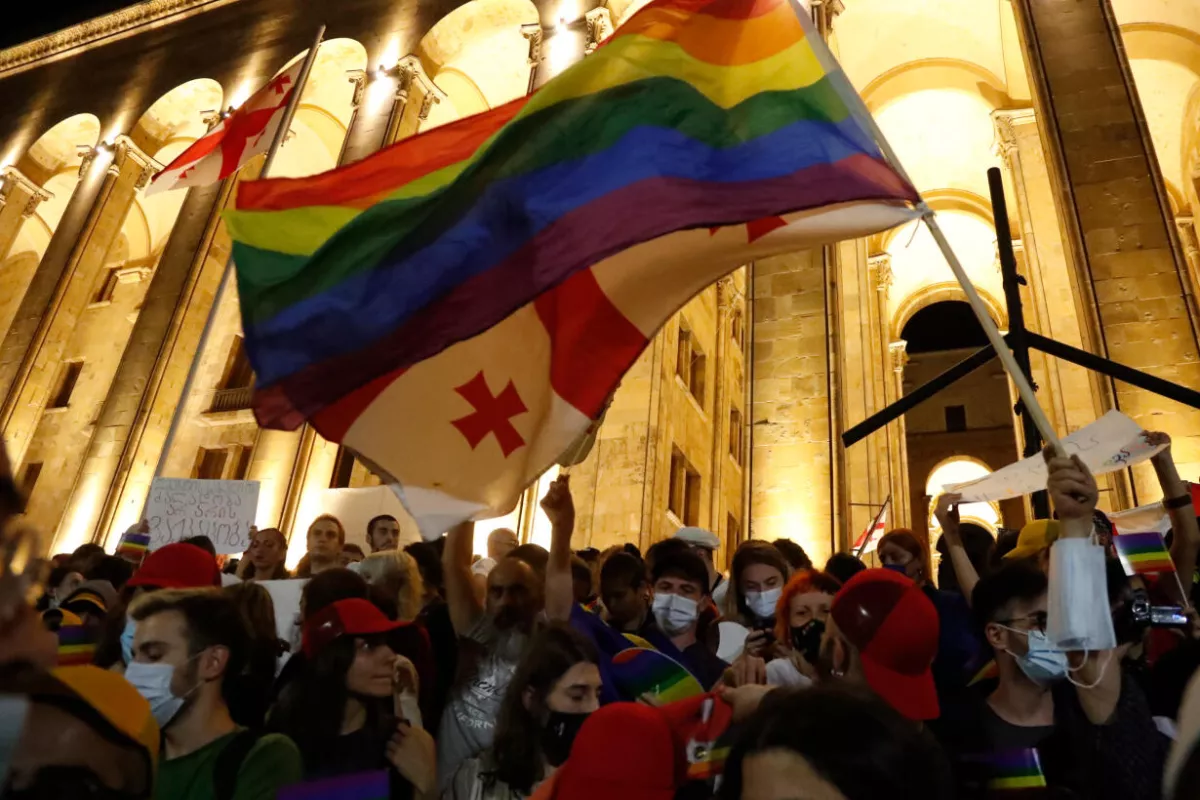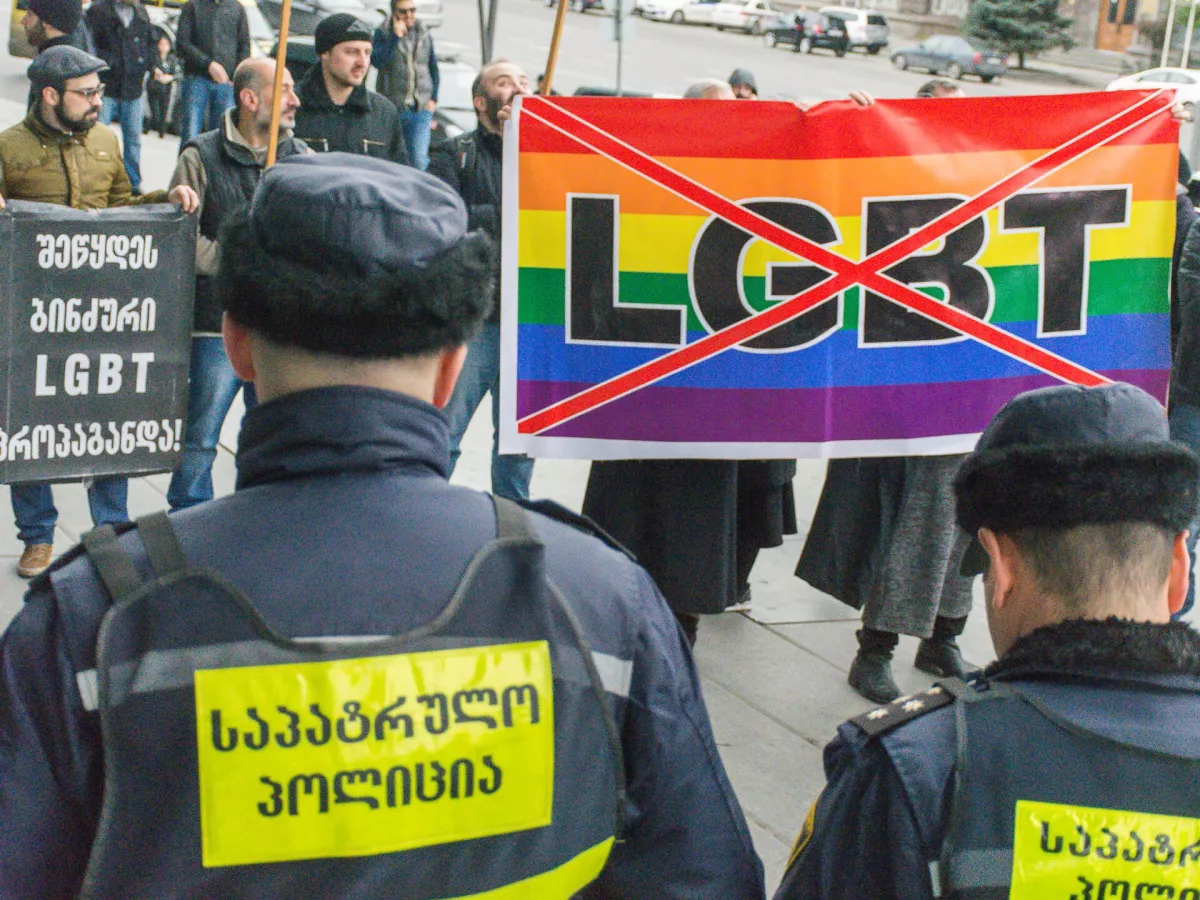Georgia's stand against LGBT agenda Testament to National Identity
On September 18, 2024, a transgender individual named Kesaria Abramidze was murdered in Tbilisi. This incident occurred "by a strange coincidence" just one day after the Georgian parliament passed a law banning LGBT propaganda, amid extremely negative statements directed at the Georgian authorities from representatives of the EU and the US. Almost immediately, a campaign of sympathy for the victim and hatred towards the "homophobic" Georgian government unfolded on social media.
The ruling party, "Georgian Dream," was blamed for Kesaria Abramidze's murder. Additionally, information began to circulate that the accused perpetrator "was one of those who had used violence against participants in the protests against the foreign agents law in April." Thus, the LGBT agenda was attempted to be used as a means of destabilizing the internal situation in Georgia ahead of the parliamentary elections scheduled for October 26, 2024.
However, the opposition failed to mobilize people for protests or generate widespread sympathy for transgender individuals and the LGBT community. This occurred despite social media being flooded with lamentations for the "poor girl" who was once a man.
In the past, pro-Western NGOs and the opposition in Georgia attempted to spark protests based on "sympathy for the victims of homophobia." This was particularly evident in the summer of 2021 when the traditionally conservative Georgian public disrupted the efforts of Tbilisi Pride to hold an LGBT parade. At that time, Georgian authorities cancelled the planned events for July 5, 2021, citing security concerns, as these activities were actively promoted by Western embassies.
However, six days after the clashes between supporters and opponents of LGBT rights, Lekso (Alexey) Lashkarava, a cameraman for the Georgian television channel TV Pirveli, died from injuries sustained during those events. The opposition immediately sought to portray him as a "victim of an attack by opponents of the LGBT community." Pro-Western NGOs gathered several hundred supporters outside the Parliament building, demanding the resignation of Georgian Prime Minister Irakli Garibashvili and Minister of Internal Affairs Vakhtang Gomelauri.
Later, the investigation revealed that Lashkarava died from a drug overdose, and "homophobes" were not responsible for his death. Attempts to organize mass protests in sympathy for the journalist also failed.
This does not mean that similar "unexpected" deaths or murders of LGBT community members or their advocates won't be used in the ongoing confrontation between the Georgian authorities and external forces regarding the LGBT agenda.

It is no secret that the West allocates substantial resources to promote LGBT rights worldwide, demanding full tolerance from national states, even when it contradicts their national and religious traditions. These traditions are often targeted for dismantling and reshaping into a "unified religious format." Despite significant opposition to the LGBT agenda from a large portion of traditionally-minded Catholic communities, Pope Francis actively expresses his support for LGBT individuals, serving as a model for other religious leaders.
The Georgian Orthodox Church, one of the most conservative religious organizations globally, resists the externally imposed LGBT agenda in its country. However, in many other Christian nations, such resistance has effectively crumbled. Against the backdrop of Greece, which earlier this year became the first Orthodox country to legalize so-called "same-sex marriages," Georgia stands as a bastion of conservatism and a unique "model for emulation" among other Orthodox nations.
In Russia, sympathy among conservative Orthodox believers toward Georgia has increased. This shift may have certain implications for the geopolitical perspectives of these individuals. While Georgia-haters like Konstantin Zatulin continue to desperately defend separatism in Abkhazia and the Tskhinvali region following the collapse of their favoured "Artsakh," Orthodox Russians, long influenced by Armenian lobbying that promoted anti-Georgian sentiment and support for separatism, are beginning to awaken to a new reality. It is possible that there will be a gradual shift in Russia toward supporting the restoration of territorial integrity for their fraternal Orthodox nation, Georgia.
Georgia now aligns more closely with the ideals of the Orthodox conservative community in Russia, particularly in light of the evident disillusionment with Greece, which has succumbed to the LGBT agenda. It is important to remember that the idea of "returning Constantinople" to the Greeks has long been artificially sustained among Russian Orthodox patriots. The name "Tsargrad," used for a prominent supposedly "Orthodox" information resource in Russia, was deliberately chosen by its owner, Konstantin Malofeev, as a clear reference to plans for reclaiming Istanbul—formerly Constantinople—from Türkiye.
Now, the example for Orthodox Russians is no longer Greece, which has yielded to the LGBT agenda and maintains a hostile relationship with Türkiye, but rather conservative Georgia, which exemplifies the defence of national and religious identity.

Through the imposition of the LGBT agenda, supranational and transnational structures undermine the national sovereignty of states. Once a country holds a pride parade and recognizes the "normality" of LGBT propaganda among youth, it begins to slide down a path of decay and the relinquishing of national interests. The notable exceptions to this trend are Hungary, where Prime Minister Viktor Orbán’s government has successfully legislated against LGBT propaganda among schoolchildren, and Turkey, where pride parades in Istanbul were halted after Recep Tayyip Erdoğan came to power.
The promotion of the LGBT agenda genuinely leads to the erosion of the traditions of entire nations and states. These processes are evident in many Western European countries and, for instance, in Thailand, where the development of tourism is accompanied by the growth of the "vice industry." This trend results in a catastrophic decline in birth rates, the disintegration of families, an increase in mental health disorders, suicides, and the spread of HIV.
The Georgian Orthodox Church and the ruling party, Georgian Dream, which advocate for the preservation of national identity, clearly express their desire to avoid such a fate for their people. This is why the Georgian parliament's passage of a law banning LGBT propaganda on September 17, 2024, received overwhelming support from the majority of Georgian society.
The imposition of the LGBT agenda often goes hand in hand with the technologies of colour revolutions. In countries with traditional values, protests against such agendas frequently become tools for exerting pressure on authorities. Nations that yield to this pressure demonstrate weakness in other areas, rendering them vulnerable to external interference and destabilization.
Today, the Georgian authorities clearly indicate that they do not wish to see a repetition of the Ukrainian scenario in their country.
Vladimir Tskhvediani, Georgia, for Caliber.Az








